Freemasonry often sparks curiosity and skepticism due to its secretive nature. Many view it as a cult or conspiracy, filled with dark rituals and hidden agendas. However, this perception overlooks the organization’s true focus on moral development and community service. As Freemasonry evolves, it’s crucial to separate fact from fiction. What lies behind the myths, and how does this fraternal order shape modern society? Exploring these questions reveals a complex tapestry worth examining.
- Key Points
- The History of Freemasonry
- Core Beliefs and Practices
- Famous Freemasons Throughout History
- Common Myths Surrounding Freemasonry
- The Role of Freemasonry in Society
- The Impact of Freemasonry on Modern Culture
- Exploring the Secrets of the Freemasons
- Frequently Asked Questions
- How Can I Join the Freemasons Today?
- Are There Age Requirements for Membership?
- Do Freemasons Have a Specific Dress Code?
- How Do Freemasons Fund Their Activities?
- Can Women Join Freemasonry?
- The Sum Up
- More Guided Tours in Paris
- More Tours in Paris
- More Tour Reviews in Paris
- Still browsing? Here are more Paris experiences we've covered recently
Key Points
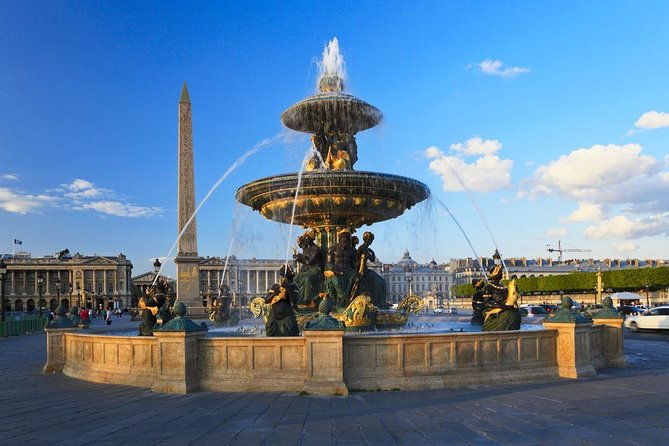
- Freemasonry originated from stonemason guilds and evolved into a fraternal organization focused on moral and ethical values.
- Common myths include beliefs in secretive rituals and political conspiracies; these are largely misconceptions.
- Membership in Freemasonry is diverse, comprising individuals from various backgrounds, not just influential figures.
- Freemasonry emphasizes brotherhood, charity, and personal development rather than secrecy or dark practices.
- The organization actively contributes to society through charitable initiatives and promotes civic responsibility among its members.
The History of Freemasonry
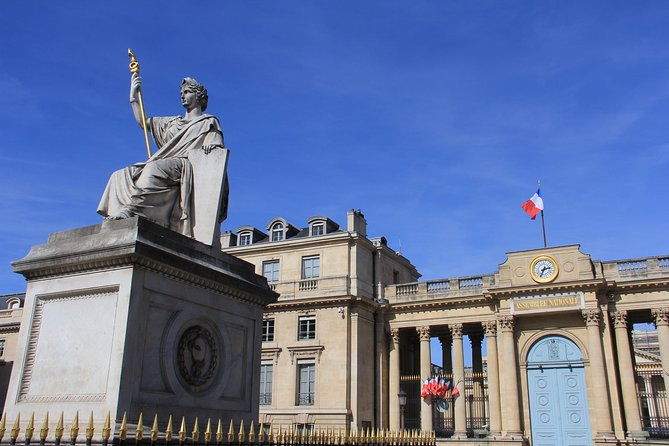
Although the exact origins of Freemasonry remain shrouded in mystery, it’s widely believed to have emerged in the late 16th to early 17th century, evolving from the guilds of stonemasons and cathedral builders in Europe.
Initially, these guilds focused on craftsmanship and shared knowledge. Over time, Freemasonry transformed into a fraternal organization, emphasizing moral and ethical values.
The first Grand Lodge was established in London in 1717, marking a significant milestone in its history. As it spread across the globe, Freemasonry attracted a diverse membership, intertwining itself with various cultural and political movements, thereby shaping its complex narrative.
Looking for more options in Paris? We've reviewed plenty of other experiences.
Core Beliefs and Practices
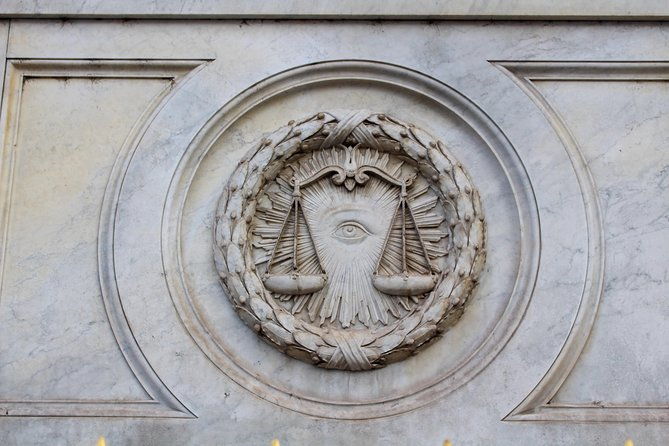
Freemasonry’s evolution into a fraternal organization brought with it a unique set of core beliefs and practices that define its members.
At its heart, Freemasonry emphasizes the values of brotherhood, charity, and integrity. Members engage in rituals and ceremonies designed to foster personal growth and moral development.
They believe in the importance of self-improvement, community service, and the pursuit of knowledge. Freemasons also uphold the significance of a Supreme Being, though they respect diverse interpretations of spirituality.
Famous Freemasons Throughout History
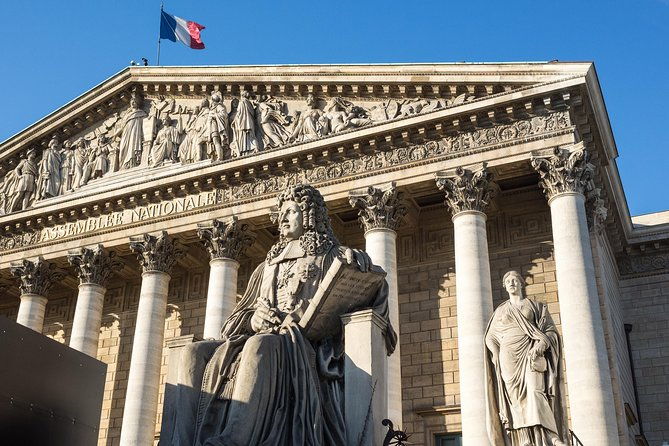
Many influential figures throughout history have been associated with Freemasonry, each contributing to its legacy in unique ways.
These prominent members span various fields, from politics to the arts, highlighting the society’s diverse impact.
- George Washington, the first President of the United States
- Wolfgang Amadeus Mozart, renowned composer
- Winston Churchill, British Prime Minister during WWII
- Mark Twain, celebrated author and humorist
Each of these individuals not only embraced Freemasonry’s principles but also left an indelible mark on society, shaping the world through their extraordinary achievements and values.
Common Myths Surrounding Freemasonry
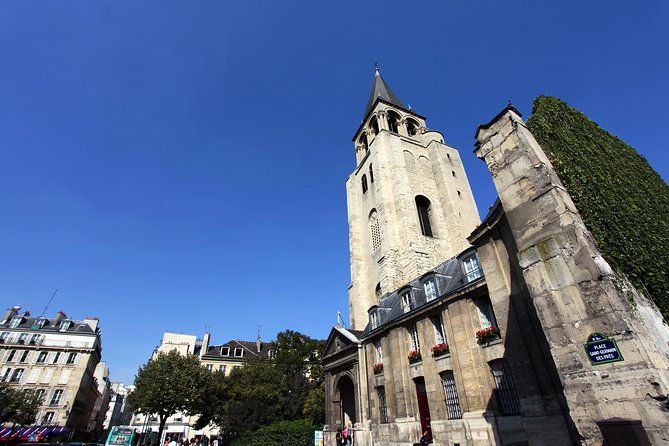
What misconceptions linger about Freemasonry? Many believe it’s a secretive cult or a political conspiracy. In reality, Freemasonry is a fraternal organization focused on moral and ethical development.
Another myth suggests that Freemasons worship a "Grand Architect" or use strange rituals for dark purposes, but their ceremonies aim to foster personal growth and community service.
Some think membership guarantees wealth or power, which isn’t true; Freemasons come from diverse backgrounds.
Lastly, the notion that Freemasonry is solely for men is being challenged, as many lodges now welcome women, making it a more inclusive organization than ever before.
The Role of Freemasonry in Society
While some may view Freemasonry as an obscure fraternity shrouded in secrecy, its influence on society is both significant and multifaceted. Throughout history, Freemasons have contributed to various social causes, promoting values such as charity, equality, and civic responsibility.
Their networks often foster community engagement and philanthropy, impacting local and global initiatives.
- Promoting ethical behavior and integrity
- Supporting charitable organizations and causes
- Encouraging education and personal development
- Fostering connections among diverse individuals
These elements showcase Freemasonry’s enduring role in shaping societal values and driving positive change within communities.
- Orsay Museum Semi-Private 6ppl Max Tour (Reserved Entry Included)
- Champagne Day Trip With 6 Tastings, Reims and Winery From Paris
- Paris Montmartre Walking Tour Best Art Culture and Food
- Normandy D-Day Small-Group Day Trip With Omaha Beach, Cemetery & Cider Tasting
- From Paris: Versailles Full Day Bike Tour With Royal Gardens
- Paris Walking Food Tour With Secret Food Tours
The Impact of Freemasonry on Modern Culture
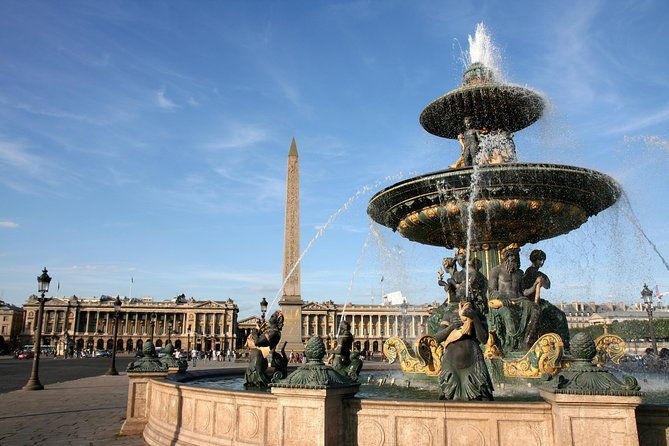
Although often viewed through a lens of mystery, the influence of Freemasonry on modern culture is both profound and visible across various facets of society.
From architecture to literature, Masonic principles of brotherhood and morality have inspired countless works. Symbols like the square and compass appear in artistic endeavors, while themes of enlightenment resonate in philosophical discussions.
On top of that, numerous influential figures, including presidents and authors, have ties to Freemasonry, subtly shaping public discourse.
The fraternity’s emphasis on charity and community service continues to inspire civic engagement, proving that its impact transcends secrecy, contributing to the foundation of contemporary values and cultural norms.
Exploring the Secrets of the Freemasons
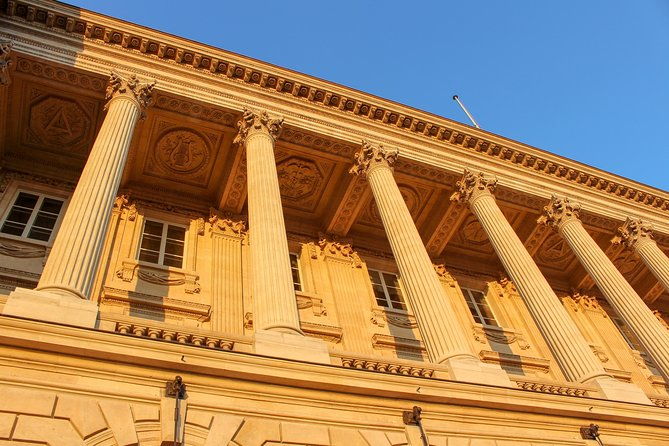
The secrets of the Freemasons have long fascinated historians and curious minds alike, as they navigate the thin line between myth and reality.
This society, shrouded in mystery, offers insights into its rituals, symbols, and philosophy. Many wonder about the true significance of their secretive gatherings and coded language.
- The role of symbolism in Masonic traditions
- The significance of initiation rituals
- Historical figures associated with Freemasonry
- Common misconceptions and truths
As enthusiasts delve deeper, they uncover layers of meaning that challenge preconceived notions and reveal a rich tapestry of history and belief.
Frequently Asked Questions
How Can I Join the Freemasons Today?
To join today, interested individuals should research local lodges, attend informational meetings, and express their desire to join. They’ll need recommendations from current members and must align with the organization’s values and principles.
Are There Age Requirements for Membership?
There’re generally age requirements for membership in various organizations. Typically, candidates must be at least 18 or 21 years old, ensuring maturity and understanding of the responsibilities associated with joining such groups.
Do Freemasons Have a Specific Dress Code?
When it comes to dress codes, many organizations prioritize formal attire. Members typically wear business suits or specific regalia during meetings, reflecting respect for tradition and the significance of their gatherings. It’s all about maintaining decorum.
How Do Freemasons Fund Their Activities?
They fund their activities through membership dues, donations, and fundraising events. Members often contribute financially to support local charities and community initiatives, ensuring their organization remains active and engaged in philanthropic efforts.
Can Women Join Freemasonry?
Women can’t traditionally join Freemasonry, as most lodges have been male-only for centuries. However, alternative organizations exist, allowing women to participate in similar values and activities, fostering fellowship and community among like-minded individuals.
The Sum Up
To sum it up, Freemasonry is often misinterpreted, with myths overshadowing its true purpose. By focusing on moral development, brotherhood, and charitable work, Freemasons play a vital role in their communities. As the organization evolves to embrace inclusivity, it continues to dispel misconceptions and foster a positive impact on society. Understanding the real values of Freemasonry helps unravel the mystery, revealing a fraternal order dedicated to personal growth and the betterment of the world.
More Guided Tours in Paris
- Guimet Museum: Guided Tour of the Religions of the Indian World Ticket Included
- Paris Montmartre & Sacre Coeur Semi-Private Guided Tour 12pp
- Paris Catacombs Guided Tour
- Paris Walking Tour with a Local Guide: Private & 100% Personalized
- Paris Latin quarter: Private walking tour with a local guide
- Paris – Guided Visit & Tasting in a Royal Wine Cellar
More Tours in Paris
- Guimet Museum: Guided Tour of the Religions of the Indian World Ticket Included
- Paris Montmartre & Sacre Coeur Semi-Private Guided Tour 12pp
- Central Paris Highlights Walking Tour
- Paris Catacombs Guided Tour
- Best of Paris Tour with the Louvre, Eiffel Tower & Notre Dame
- Paris Notre Dame Cathedral & lle de la Cite Walking Tour
More Tour Reviews in Paris
- Guimet Museum: Guided Tour of the Religions of the Indian World Ticket Included
- Paris: Complete Historical & Cultural Immersion (2 Days)
- Paris Day Trip with Eurostar and Hop-On Hop-Off Bus
- Paris Montmartre & Sacre Coeur Semi-Private Guided Tour 12pp
- Europe: Train of Thoughts A Philosophical Journey on Rails
- Paris: Immersive Fine Dining Meets Art in an Ancient Cinema
Still browsing? Here are more Paris experiences we've covered recently
- Guimet Museum: Guided Tour of the Religions of the Indian World Ticket Included
- Which Paris Workshops & Classes To Choose? We Rank The 14 Best
- The 11 Most Popular Full-Day Tours In Paris
- Paris’s 14 Best Wine Tours: Which To Choose?
- Which Paris Historical Tours To Choose? Our Best 14 Picks
- Paris’s 14 Top Tours (With Prices)
- Our 14 Favorite Paris Tours & Experiences
- The 14 Best Walking Tours In Paris
- Paris’s 10 Top Lunch Experiences (With Prices)
- 7 Best Cooking Classes In Paris
- The 8 Best Drinking Tours In Paris
- Our 5 Favorite Paris Shopping & Market Tours
